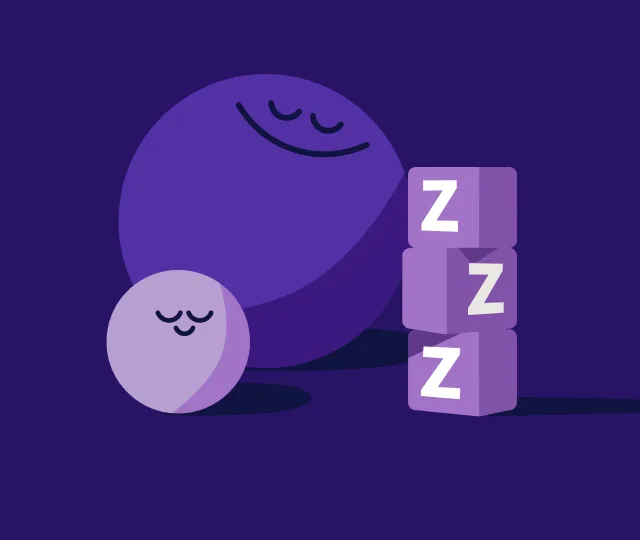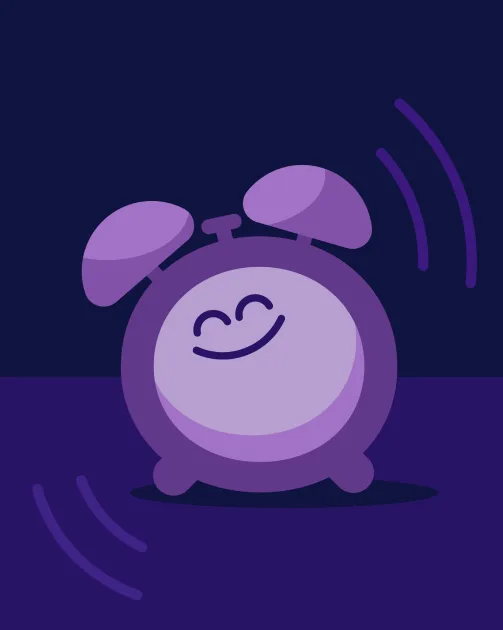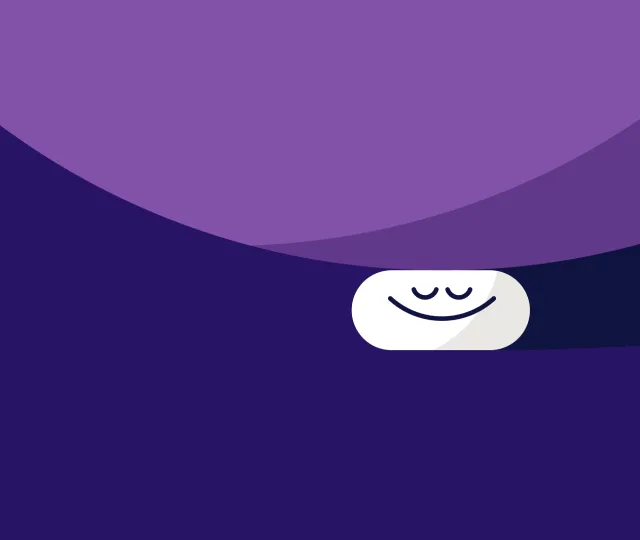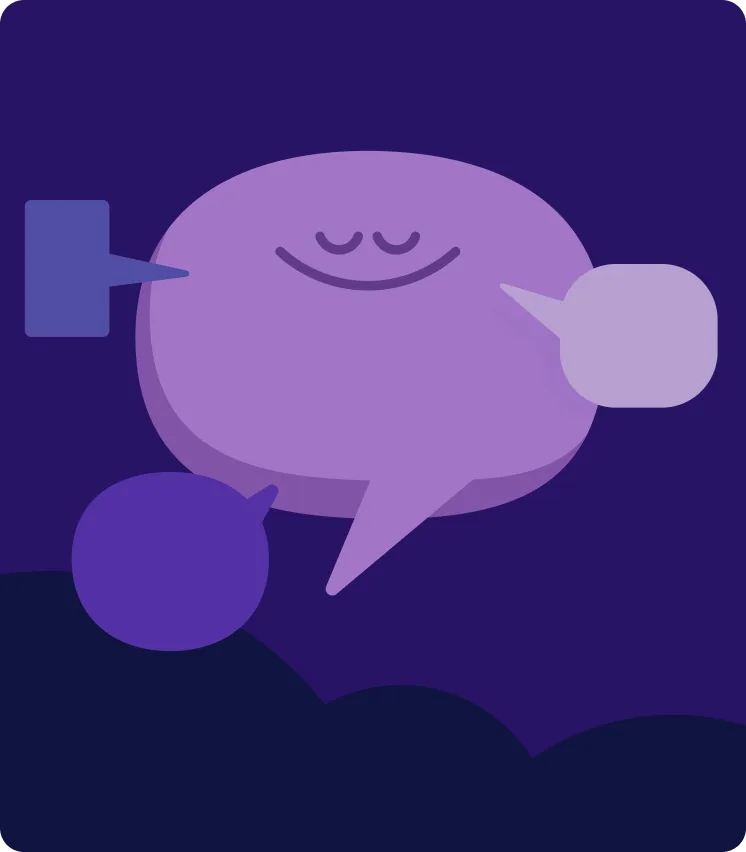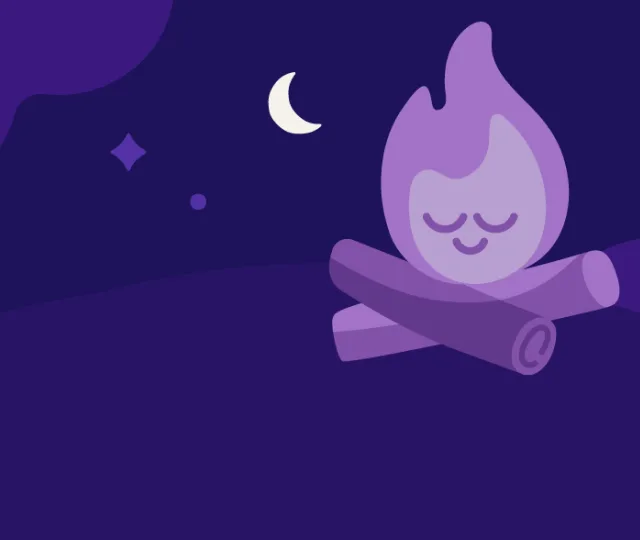How to help kids sleep better
By Your Headspace Mindfulness & Meditation Experts
Superheroes can climb walls. They’re fast, strong, and agile. And as any exhausted parent would agree, one superpower worth having is knowing how to make kids sleep.
There are memorable milestones in a child’s life: their first smile, first word, first step. But perhaps the single most longed-for achievement of all is the night your child falls asleep unaided — without having to be cradled, snuggled, or driven around the block.
Millions of parents the world over understand this frustration. Whether your child consistently resists bedtime or wakes up multiple times a night and can’t fall back asleep, the struggle is real. It’s worth remembering, however, that it won’t always be this way, and that there are tried and tested methods to help kids sleep.
Take 1 minute to breathe before bedtime
Try this short, calming meditation with your child to wind-down for sleep

Mini-Meditation: Breathe
1 min
How much sleep do kids need?
Sleep needs vary from child to child, but there are general guidelines regarding how much sleep children should be getting each night. According to the American Academy of Sleep Medicine (AASM), toddlers need 11-14 hours; ages three to five should get 10-13 hours; ages six to twelve need 9-12 hours; and teenagers require 8-10 hours.
Healthy sleep is essential for nourishing children’s bodies and minds. Physically, it’s necessary for restoration, rejuvenation, strengthening the immune system, boosting children’s muscle growth, and regulating hormones. Mentally, it plays an important role in helping children retain information and perform better on memory tasks. In other words, quality sleep also plays a critical role in their cognitive development.
How to get kids to sleep
Being a kid is a busy job. After a long day of school work and playing around the house, yard, or neighborhood, their bodies and minds need time to wind down. So, when it comes to getting kids to sleep, preparation is everything.
Just like good sleep hygiene for adults suggests, an optimal toddler bedtime routine actually begins well before climbing under the covers. Here are a few things to try with your kids throughout the day that may help sleep come easier at night:
1. Be a stickler about bedtime.
Even if you get hit with puppy eyes and a persuasive plea to stay up past bedtime, do your best to create a consistent sleep schedule for kids. While this is admittedly easier said than done, setting fixed bedtimes and wake-up times (even on weekends) has been proven to promote and maintain a healthy circadian rhythm, making it easier for your child to fall asleep and wake up naturally.
2. Pull the plug on electronics and bright light before bed.
Screen time doesn’t help dream time. Both the blue light from devices and bright ambient light can suppress the secretion of melatonin, tricking the brain into thinking it’s daytime. In the ambitious odyssey that is figuring out how to get kids to sleep, powering down electronics, dimming the lights, and not using phones before bed can all make a major difference.
3. Give them some green time.
All those touted health benefits of the great outdoors aren’t a myth. In a 2017 study, researchers from the University of Groningen in the Netherlands found that “exposure to sunlight allows people to sleep more deeply and soundly the following night.” They also found that exposure to morning sunlight can be particularly helpful as it helps to reinforce the natural body clock. On mornings that aren’t jam-packed, try taking a quick walk with your kids before the day’s indoor activities begin.
4. Keep downtime on the calendar.
You know how hard it can be to power down after a busy day at work; the same is true for kids. Settling down for sleep can be challenging when homework, sports, appointments, and other commitments run late into the evening. When possible, try to make sure your child has plenty of relaxing time before bed.

Sleep meditations for kids
As Headspace co-founder Andy Puddicombe says: “We teach our kids to look after their bodies, but we don’t teach them to look after their minds. Teaching them about meditation from an early age sets them up for life.”
Many families practice meditation before bed to help kids reduce stress and fall asleep with ease. Within the Headspace app, you’ll find a Meditate with kids category, which includes a number of different exercises and meditations you can do with children of all ages. Consider trying one of the options below to set your child up for a good night’s sleep.
- Settle into bed with Monster Meditation.
To make mindfulness fun and easy to understand for little ones, Headspace has recruited beloved Sesame Street characters to star in a handful of expert guidance videos. In one of the videos, Andy takes Elmo through a “Goodnight” meditation, which helps kids gently switch off different parts of the body, preparing them for sleep. Try watching this video with your child and putting the guidance into practice come bedtime. Or search “Goodnight” in the Headspace app to find 1-, 3-, or 5-minute guided audio meditations you can play for them, whether they are under 5, ages 6-8, or ages 9-12.
- Doze off with a Sleep Tight.
Search “Sleep Tight” in the Headspace app and you’ll find guided meditations for 3 different age ranges (ages 5 and under, ages 6-8, and ages 9-12). These 3-, 6-, or 9-minute meditations help to slow down those busy brains and lull their minds into a sleepy state.
- Practice mindful breathing with kid’s Calm Meditations.
These simple breathing exercises help nurture feelings of peace and relaxation. Sometimes kids just need to unwind, settle down, and breathe. Calm is a timeout they will actually enjoy, available for ages 5 and under, ages 6-8, and ages 9-12. Use this at bedtime or during the day when they need a quick reset.
Parents need sleep, too
Once your little one is fast asleep, it’s time to make sure your wind-down routine also promotes a healthy sleep schedule. Despite being physically exhausted at the end of the day, many parents often find themselves experiencing nights of restless sleep, as their minds continue to race long after their head hits the pillow.
If you’re having difficulty drifting off, know that Sleep by Headspace is on hand, with a collection of sleep sounds, sleep music, and sleepcasts to help you slip into the slumber of your dreams. That is, until your youngsters wake up the next morning ready for breakfast — and fully rested.


Sleep made simple
- Find your perfect bedtime routine with hours of relaxing music, sounds, and stories to choose from
- Get more restful sleep with our Sleep Health course: exercises developed with leading sleep scientists
- Feel your best from morning to bedtime with access to hundreds of stress-relieving meditations
Annual - billed at $69.99 USD/yr
14 days free
$5.83 USD/month
Monthly
7 days free
$12.99 USD/month

- © 2024 Headspace Inc.
- Terms & conditions
- Privacy policy
- Consumer Health Data
- Your privacy choices
- CA Privacy Notice

